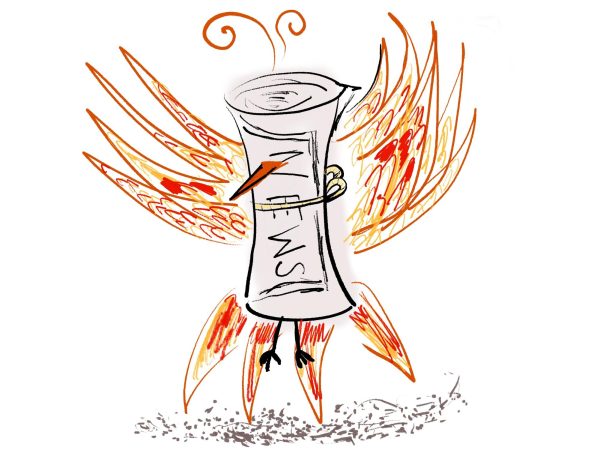Failed Resolutions
Why your New Year’s resolutions never stick
This year’s ball drop in Times Square was especially meaningful, bringing a final end to the unfortunate year of 2020.
Although there are probably people out there who take new year’s resolutions seriously, for me, when the time comes to make them, I always settle for the same three things: eat healthier, be on my phone less, and get more exercise. I might feel motivated for one day in the first week of the new year at the most—I’ll eat no junk food for the whole day or do a couple Chloe Ting ab workouts. But that’s the peak of my motivation, and within another week or two, I will have forgotten what my resolutions even were.
According to an article in Forbes by Ashira Prossack, “studies have shown that less than 25 percent of people actually stay committed to their resolutions after just 30 days, and only 8 percent accomplish them.” U.S. News & World Report found that by mid-February, most people have given up on their resolutions. Data from Strava, a social networking site, revealed that the second Friday in January is the most common day when athletes lose motivation and quit their resolutions. Clearly, making new year’s resolutions is essentially pointless. Here’s why.
First, ask yourself the question, why did you actually make new year’s resolutions this year? Most likely, it wasn’t because you felt truly motivated to accomplish them. Did you just want to be prepared for when your advisor asks everyone to say theirs, to make conversation in an otherwise monotonous Zoom advisory? Personally, I know I would have forgotten to come up with them at all if my mom hadn’t asked me at the dinner table on new year’s eve.
Telling people your resolutions often feels like announcing that you will try to do the things you’re already constantly trying to do. When I say that I’m going to exercise more in 2021, I don’t really mean that. Of course I’m always trying to get more exercise, so it would be great if I could magically get into perfect shape in 2021. However, in reality, I will continue to try to improve as I have before. Since I’m the same person I was last year, it’s not likely to be much different.
Let’s face it, who actually feels like a new person the moment the clock changes from 11:59 p.m. to 12:00 a.m. on New Year’s Eve? On your birthday, you don’t feel a year older. You can understand the symbolism of both of these days, that another year of your life has gone by, but you can’t physically feel the significance.
One of the most frustrating things is being told, “to accomplish your resolutions, you have to be committed and ready to work hard.” This advice is completely ineffective. It’s the same thing as when you procrastinate too much, so your parents tell you to “just do your work.” Just as you can’t define a word using that word, you can’t solve a problem with the problem itself.
Of course, there’s the minority in the statistics, that 8 percent of people who claim to accomplish their resolutions. If you really are one of those people: congratulations, that’s impressive. For people who are genuinely willing to change, here are a few tips: you’ll have a higher chance of achieving your goals if you start with small steps, tell your friends about them, and set more easily achievable goals. Then for the people who are lazy like me, who will probably never stick to their resolutions, just know that you’re the majority. You’re not alone.

Isadora is a senior and an Editor-in-Chief. A four-year member of The Tower, she loves to write about a variety of topics, from school coverage to national...







